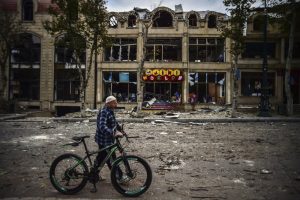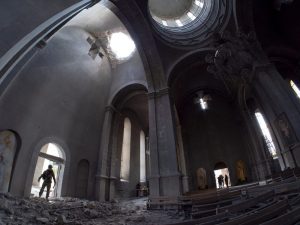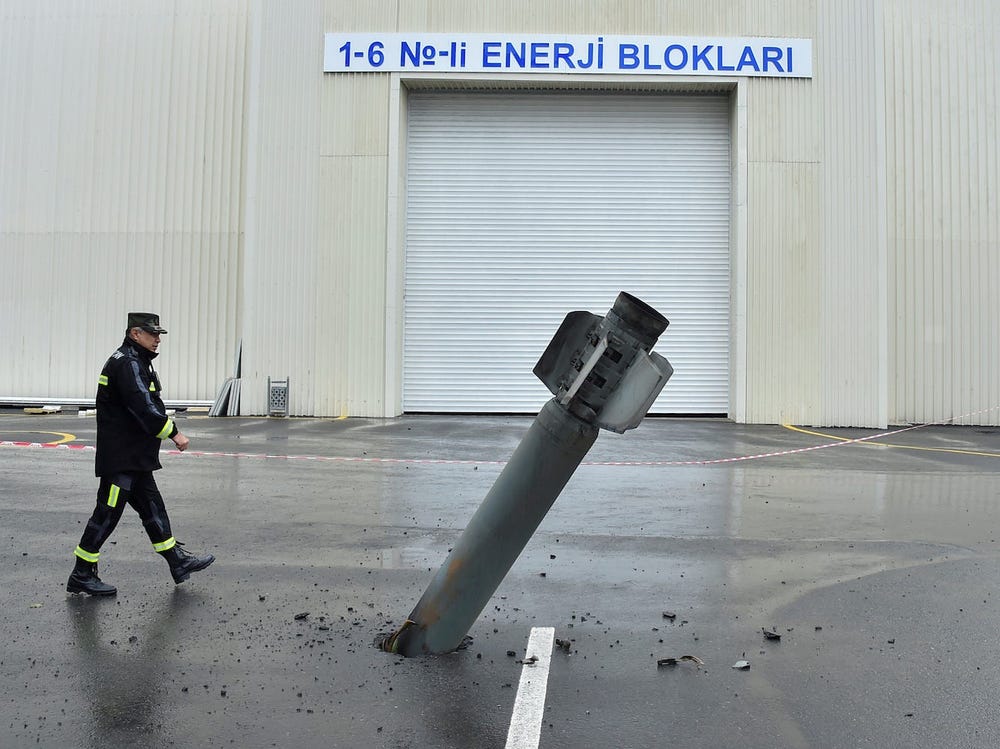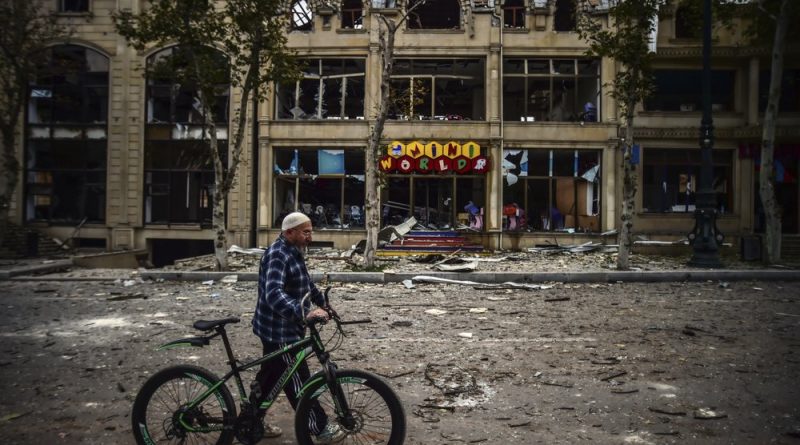Conflict Persists Between Armenia and Azerbaijan Over Disputed Nagorno-Karabakh

By Harshana Ghoorhoo
International News Writer
In the latest developments in the conflict between Azerbaijan and Armenia, both parties have accused each other of violating the ceasefire brokered by Russia in the disputed region of Nagorno-Karabakh. Despite this precarious diplomatic accord, at least nine people died in an overnight Armenian bombardment in Azerbaijan, less than 24 hours after the ceasefire was agreed upon.
The current tensions have their most recent origins in the Soviet Union collapse in 1991 when Karabakh, an Armenian enclave inside Azerbaijan, declared independence. However, Azerbaijan still claims the territory, while Armenia backs the enclave. International law posits that Nagorno-Karabakh is part of Azerbaijan, nonetheless the ethnic Armenians, who make up the majority of the population, reject Azerbaijani rule and govern their own affairs with support from Armenia.

Minor scuffles and clashes have occurred in the last two decades, but had not led to full scale conflict, until this year. Warning signs were visible in early July when border clashes between both countries led to 16 deaths. However, with much of the international community distracted by the pandemic and the nationwide protests in Belarus, the conflict south of the Caucuses flew somewhat under the radar until the tension had reached a fever-pitch. The most recent fighting broke out on September 27 when Armenia’s defense minister confirmed an attack on civilian settlements in Nagorno-Karabakh, BBC says. Following the attack, Armenia declared martial law within the disputed region, which permits the military to take over authority of civilian government. Armenia retaliated by shooting down Azerbaijani helicopters and drones.
Following the outbreak of the conflict, Russian Foreign Minister Sergey Lavrov mediated ceasefire talks between Azerbaijan and Armenia on October 10, Al Jazeera further reports. While the specific terms of the ceasefire agreement had yet to be decided, both parties agreed to exchange prisoners and collect the dead from the battlefield.
Turkey, seizing upon the opportunity to strengthen its foreign influence, as it has done in nations like Syria and Libya, has given support to Azerbaijan. Furthermore, both sides have long-range artillery missiles and drones. Nagorno-Karabakh’s capital, Stepanakert, has sustained multiple attacks. Azerbaijan has further accused Armenia of launching rockets at the city of Ganja and a hydroelectric station, with Baku characterizing Armenian efforts “an effort to damage civilian infrastructure,” according to The New York Times.
External involvement from the surrounding region has been overwhelming. Associated Press says that Turkey has sent in “hundreds of Syrian opposition fighters” to back Azerbaijan. So far, Turkey has sent 1,200 soldiers of which 72 have been killed. Turkey, a NATO member and an ally of Azerbaijan has released a statement saying, “We believe this conflict can be resolved through peaceful negotiations, but the Armenian side has shown no interest so far.” The president of Nagorno-Karabakh, Arayik Harutyunyan, has also accused Israel of siding with Azerbaijan.
The prospects for a larger and more comprehensive peace deal remain dim amidst the ongoing conflict. Azerbaijani President Ilham Aliyev agreed to have talks but maintained that he would not make any concessions. He asserted that, “We are winning and will get our territory back and ensure our territorial integrity.”

Global powers have expressed their concerns over the escalating conflict and have called for restraint on both sides. The United States President Donald Trump has said that the U.S. was seeking to end the violence, and France has called for immediate dialogue between the two parties. Pope Francis disapproved of the fragile truce between the warring neighbors and said that the world needs to pray for the victims. The international community is watching closely, waiting for meaningful dialogue to resume without preconditions or any delay.
Contact Harshana at harshana.ghoorhoo@student.shu.edu

